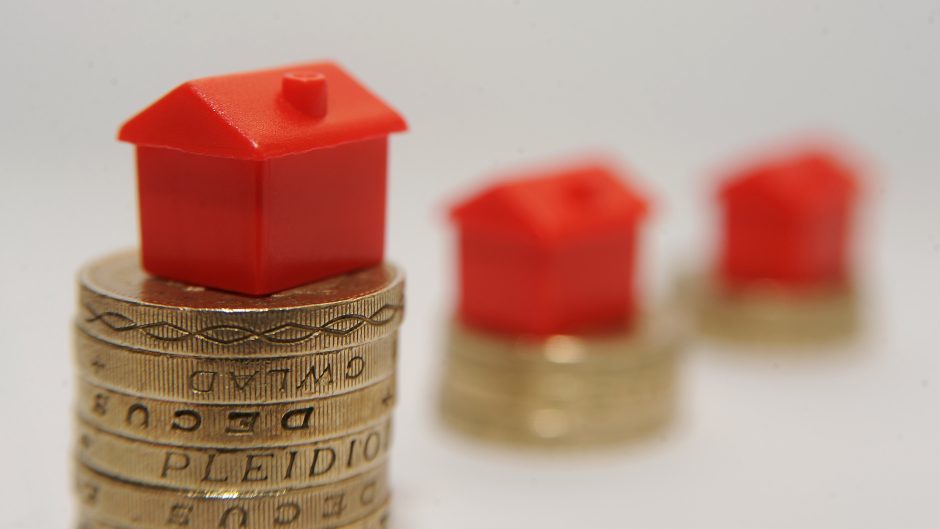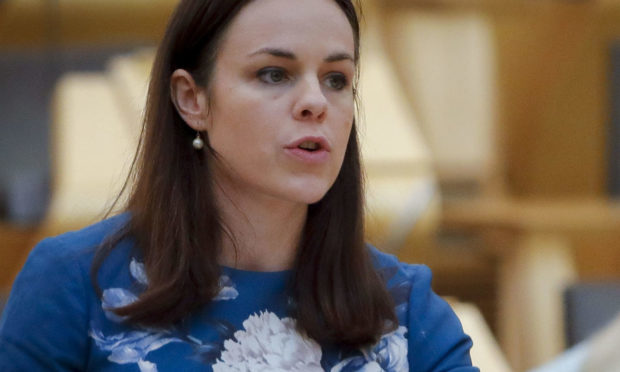Scotland’s public spending deficit ballooned to more than £15 billion leading up to lockdown and could grow significantly worse due to mounting pressure on services from coronavirus.
The country spent £15.1 billion more than it raised in taxes last year, according to the annual Government Expenditure and Revenue Scotland (Gers) report. The deficit is now larger than the entire Scottish health budget, at £13.8 billion.
The figures, which cover the financial year to April 5 and do not reflect the full impact of the Covid-19 pandemic, show Scotland’s deficit was £2 billion higher than the previous year and represented 8.6% of the country’s GDP.
The deficit for the UK as a whole rose from 1.9% to 2.5% during the same period.
The report estimated a total of £81 billion was spent by the public sector in Scotland last year, a rise of £2.5 billion, while revenues – the money brought in through taxation and other means – rose by 0.7% to the highest number on record, at £65.9 billion.
Scotland raised £308 less per person than the UK average in taxation, while public spending was £1,663 per person higher in Scotland.
The “initial impacts” of coronavirus were present in the report, with the UK-wide lockdown coming into effect at the end of March, but its authors warned the effect will likely be greater on next year’s findings.

Scotland’s finance secretary, Kate Forbes, said the figures highlighted the need for the Scottish Government to be granted further financial powers.
Ms Forbes insisted the publication “sets out the context for why the status quo and the present constitutional arrangements are unsustainable” and said it was “incredibly frustrating” Scotland could not borrow to invest in its own recovery.
“These figures are not a reason to celebrate the status quo, these figures should be a reason to change,” she said.
“When it comes to the potential in Scotland, you can look at the short term in terms of the powers we need to respond to recovery and to respond to the pandemic as any other small advanced economy is doing right now.
“But in the longer term when it comes to economic growth and the potential in the Scottish economy, whether that’s to do with tech, whether that’s to do with our renewables, food and drink, the potential in Scotland is enormous if we had the powers to grow the economy and to invest in recovery.”
The Gers report is collated by Scottish Government economists and is intended as an illustration of Scotland’s fiscal position within the current political arrangement. It does not provide a direct indication of the finances of an independent Scotland.
The annual figures have become a battleground in the argument for Scotland’s constitutional future, and parties often disagree over what the findings mean for the independence argument, if anything.
The Scottish Conservatives described the report as a “hammer blow” for the SNP’s goals and said it proved being part of the UK was “more valuable than ever” because it provided a “Union dividend” of £1,941 per person.
Scottish Labour leader Richard Leonard said it showed Scotland’s deficit had surged even before the full economic impacts of coronavirus were felt.
“The coronavirus pandemic is a public health emergency but it has also plunged the Scottish and UK economies into the biggest freefall for 300 years,” he said.
“The Scottish and UK governments need to co-operate to restart the economy and to retain, guarantee and create jobs, and to remobilise our public services.”
Mr Leonard stressed independence would lead to “billions draining from the Scottish economy” and the country “being thrust into years of savage and unrelenting austerity”.
At a media briefing on Wednesday, Ms Forbes insisted it was “perfectly possible to manage your public finances without inflicting austerity” and said other countries around the world are also facing “unprecedented deficits”.
The finance secretary appeared to confirm plans to publish an “annual economic case for independence” alongside the Gers report, first floated by her predecessor, Derek Mackay, had been scrapped.
Mr Mackay announced in January in an interview with Holyrood Magazine that he would publish an alternative set of figures in future because he was “frustrated” that Gers did not deal with Scotland’s potential outside the Union.
First Minister Nicola Sturgeon also backed the idea when she was challenged at the Scottish Parliament over whether it was an appropriate use of public money.
Ms Forbes was repeatedly pressed on the issue on Wednesday but said her focus had been “trying to balance the budget to ensure that we’ve got a response to the pandemic”.
She would not give a clear commitment over whether the idea would be revived next year or if it had been scrapped for good, stating her focus will remain on responding to the coronavirus crisis.
Murdo Fraser, the Scottish Conservatives’ finance spokesman, said: “There was never any need for this absurd idea of Derek Mackay’s and it’s no surprise that Kate Forbes has shunned her predecessor’s legacy.
“Nationalists have always disliked Gers figures, as they highlight the increasingly disastrous economic case for an independent Scotland.
“If even the SNP’s finance secretary can’t come up with an economic case for independence, how can they expect the Scottish people to believe there is one.”
Ms Sturgeon, who was challenged on the Gers report at First Minister’s Questions, said the findings were a “reflection of Scotland’s fiscal position in the United Kingdom, not a reflection of how Scotland would fare as an independent country”.

